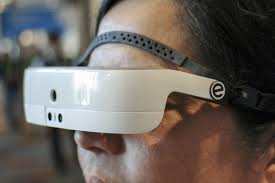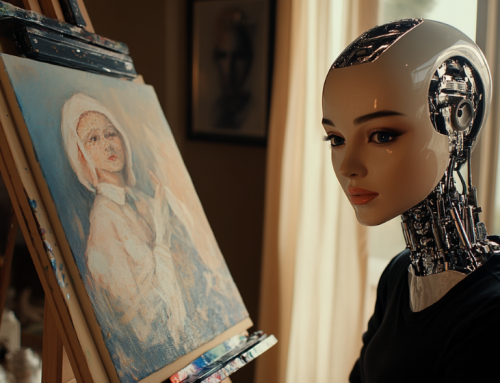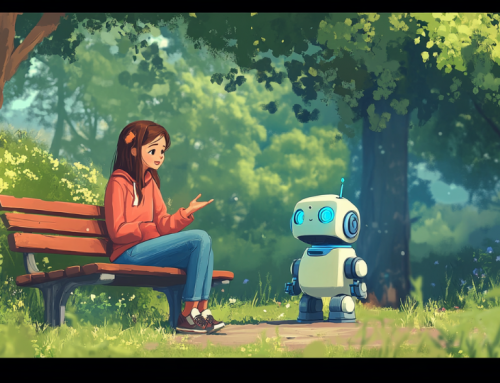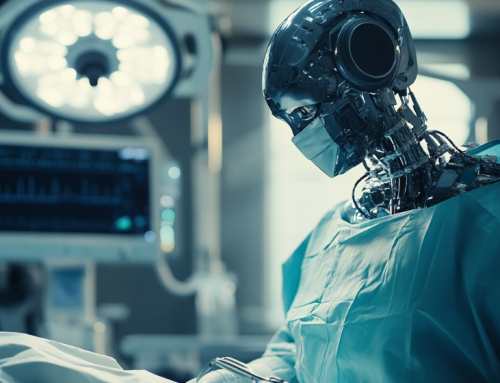It wasn’t long ago that pacemakers and implanted defibrillators for hearts were scary new technology. Some people decried “test tube” babies and objected to playing God with in vitro fertilization. Now we take these advances for granted.
But if you’re in the camp that worries about every new medical development, buckle yourself in⎯AI and quantum computing will soon make such once amazing advances seem quaint to us mere mortals as new products and medical advances extend human existence.
We are well on our way to becoming androids of a sort. Part human, part machine and part computer. For purists who worship the body as a temple, this must seem like blasphemy in the highest degree. Admit it⎯how many times have you said, “I’d never let them put a chip in my body!”? I mean, that’s the Mark of the Beast right? Well, not really. It’s an interpretation of the Bible that could be read many ways. In any case, it’s already happening as medicine continues to leave its mark on our physical bodies.
Most people are repelled at the thought of an artificial body⎯until they’re dealing with the onset of disease or injury. And that aversion to implants tends to fall away rather quickly when we need help in moving, or our brains need outside assistance to operate well. Then these notions of chips and robotic body parts become far more appealing. Just as stem cell research was once the “third rail” of political campaigns, people no longer protest stem cell research because researchers are making huge strides in successful medical procedures.
The fear we have with being “chipped” has to do with being tracked or spied upon by own governments or maybe our employers. While at least one company encourages employees to have microchip implants in their hands to open doors, pull up data and other office-related security functions, it’s not common. Books like George Orwell’s 1984 predicted a Big Brother-controlled society. It’s not outside of the realm of possibility, as we’ve already seen in China with its ubiquitous cameras facial recognition software to ID “bad” people. This fictional scenario could evolve into a real life disaster for the human race if we are not careful in how much power we turn over to AI, but we can prevent that from happening. We are also a long way from needing to worry about artificial “life” controlling us. What’s more pressing is the medical necessity to embrace new physical technology for human life.
With Alzheimer’s disease and dementia becoming prevalent, it’s crucial to consider options that may still seem frightening. We may opt for chip implants placed into our brains to increase memory function by 20, 25 or even 50 percent. That will be a miracle to millions of families and family members who have to deal with a loved one’s diminished capacity to interact with them.
I personally saw the effects of a new technology about a year ago when I was at a Starbucks, where three people were reading the overhead menu. Nothing seemed unusual until I realized two of the people were completely legally blind. However the glasses each wore were laser readers. The laser could read the letters on the menu and the tell the blind person what was before them. This device could someday, if it hasn’t already, be designed to be implanted into the person. They will be able to read as accurately and quickly as a sighted person.
Some of these Esight glasses are already available and affordable for most people. With technology like this, blindness will be far less of a disability. Someday, too, technology may make it possible to eradicate blindness as a condition by restoring eyesight with artificial eyes.
We may worry we will be more robot than human someday, but the difference between the machines and humans is that our bodies break down and can’t be easily repaired by technology. As long as humans are able to desire, we will want to live as pain-free and physically capable as possible. Implanting technology in our bodies will be the trade-off we’ll be willing to make to remain more fully human.
Here are 10 more examples of implant technology that will help humans overcome disabilities⎯and more are on the way.









Leave A Comment